Getting hurt or sick while on a family holiday can really ruin your experience.
Before you go away, it is advisable to check out these top traveling safety tips to keep your family protected from harm. Brian and I have over 30 years of travel experience between us and most of these tips come from the mistakes that we have made, or some near misses we have had. So read on and find out our top traveling safety tips – we made the mistakes that you can learn from!
This page may contain affiliate links. Please see our Disclosure for full info.
- Get Travel Insurance – The number 1 top traveling safety tip would have to be to invest in adequate travel insurance. Your whole family will be covered under the one policy and we recommend to shop around a bit to find the best prices for your trip. Premiums will vary from country to country, for example, it is expensive to be insured for travel to the USA, but not so for New Zealand. Special ‘dangerous’ activities such as mountain biking, white water rafting, diving and snow sports will not usually be automatically covered, but you should be able to purchase extra protection if you are planning on doing these riskier activities. Remember if you don’t have a motorbike license in your home country, then you won’t be covered if you come off your bike in Thailand. Travel insurance will also cover items that are lost or stolen, and doctor’s or hospital visits if you are sick. read through your individual policy and make sure you know what you are covered for before you go. Ensure you have the contact number for your insurance provider while abroad, and collect receipts for any medical treatment needed overseas. A lot of credit card these days have included travel insurance as long as you pay for a percentage of your trip on your card. My credit card company gives us up to 12 months included cover and we just pay extra if we are going snowboarding. Alternatively, World Nomads has some great flexible cover, you can get a quote below:
- Be organised – Have copies of your passports and travel itineraries attached in your email or paper copies. Label everything, including the kids!
- Make a plan with your children. We try to ensure our kids do not wander off by holding hands, using a baby carrier and a stroller and dressing them in bright coloured clothing. We also tend to avoid super crowded areas with our tribe, visiting busy places in the least busy times as much as we can. Teach them your phone number or email address and make a plan that includes where they should go for help if they do get lost. It’s so scary to lose your kids, even for a second and especially in a foreign country. Another thing that we have yet to try out is GPS Kid Tracking Watches. They require a sim card in 3G to work, so are only suitable in a few countries but they could become more of a reality as the technology improves here.
- Have a few sources of money – Make sure you have at least 3 sources of currency.
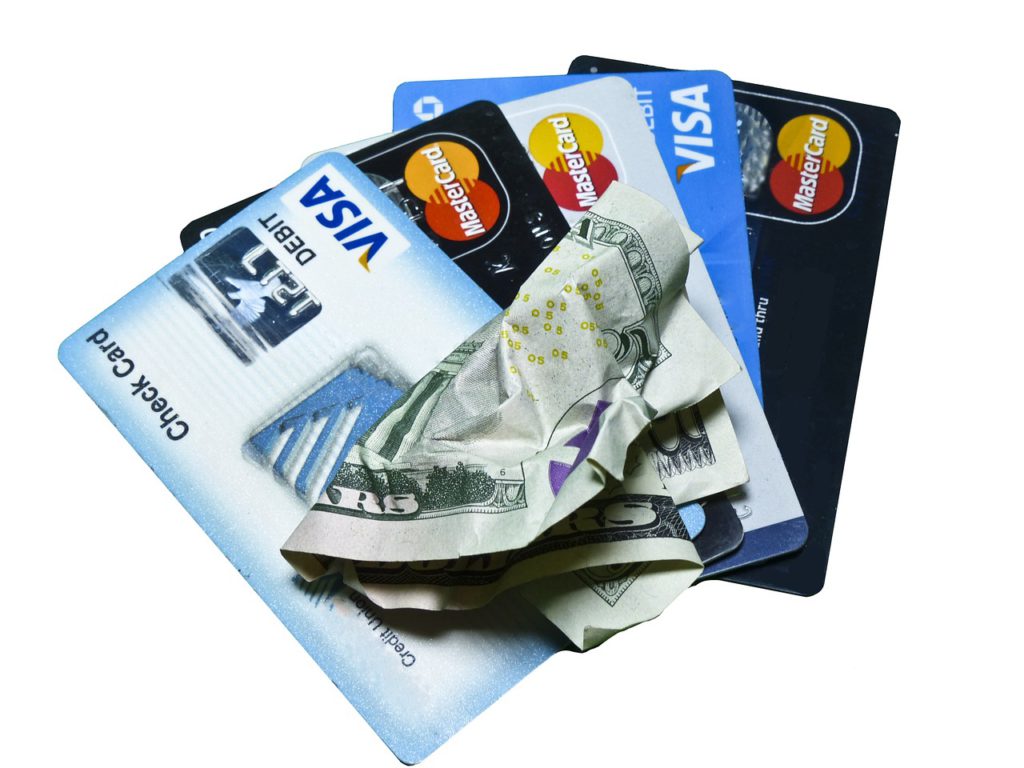 I like to travel with some local cash, a bit of US dollars, a Mastercard and a Visa. In my experience, there will be times when you just can’t find an ATM that will co-operate, and you’ve run out of cash, but there is a money changer who will change some American Dollars. It’s always important to have back up. That being said, I don’t like to travel with too much cash either.
I like to travel with some local cash, a bit of US dollars, a Mastercard and a Visa. In my experience, there will be times when you just can’t find an ATM that will co-operate, and you’ve run out of cash, but there is a money changer who will change some American Dollars. It’s always important to have back up. That being said, I don’t like to travel with too much cash either. - Don’t be flashy. Try not to wave large amounts of cash around. This sounds obvious, but I have seen enough people standing at a cash machine counting their big wads in front of the public for it to be a problem. If you are in a poorer country such as Vietnam, and especially if the currency requires a withdrawal of MILLIONS of Dong, tuck your money away straight away without showing everyone how much you have so you are not making yourself a target for a pickpocket or petty thief. Keep your gold jewelry to a minimum if you are going on a tour through a Rio Favela also! The same goes for cameras. Try to be discreet in poorer countries.
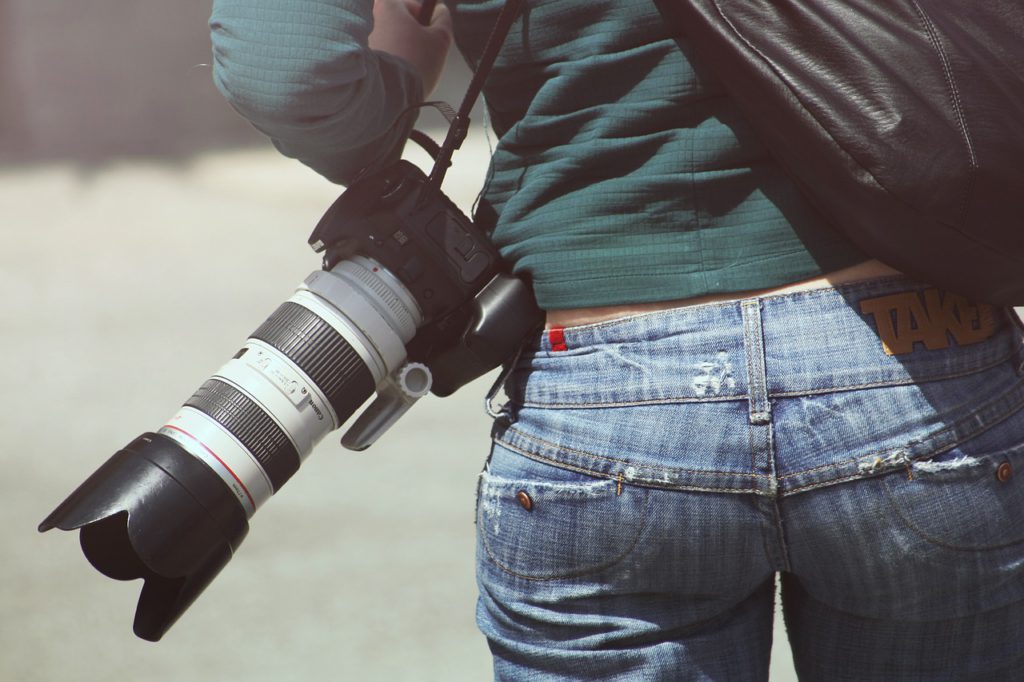
- Accessorise. A wallet that you wear under your clothes is a great idea to use, definitely in places where pickpockets are a problem. I like to wear an underclothes wallet, with an easy access little purse on the outside with only a few bucks in it so I am not always dipping into my waistband.
- Have a plan. It pays to have a contingency plan and expect the unexpected, especially when traveling overseas with the kids. What do you do if someone gets hurt or falls ill? There are medical centres for foreigners in the places frequented by travelers. It’s like knowing where the emergency exits are on a plane before you take off. Know who to call if you are in real need.
- Have a great first aid kit. If you can’t access medical treatment right away, you will need some basic first aid skills and equipment. I always carry the following in my medical kit:
Bandages Anti-Inflammatory tablets (and liquid for kids) Normal Saline Anti Nausea tablets Steri Strips Anti-Diarrhoeal tablets Triangle Sling Contraception Thermometer Paracetamol tablets (and liquid for kids) Bandaids Antibacterial Handgel and Wipes Tissues Broad Spectrum Antibiotics – both tablets for adult and unconstituted powder for kids Tweezers and splinter remover Decongestant Scalpel Electrolyte Replacement Drinks, Powder or Ice Blocks Antibacterial ointment and Soothing Ointment Water Purifier - Be aware of what is going on around you. Don’t be oblivious to your surroundings. Don’t get rollicking drunk and go off on your own. Keep your eye on suspicious activity and trust your intuition. If something feels a bit ‘off’, get out of there! If you get into a taxi, and other people get in beside the driver, get out! This happened to us in Tanzania. I was terrified because the second guy jumped in just before we were about to drive off. I jumped straight out of the car and then had to cause a scene just to get our bags out of the boot. I wasn’t about to break a golden rule and get into a potentially unsafe situation. In Peru they take a video of you as you board the overnight bus just in case it is hijacked so they can account for everybody. In Colombia, there is a guard on the bus with an AK-47. Always a comfort! In Morocco, we were ushered into the back room of a silver shop in a deserted street and we weren’t allowed to leave until we bought something.
- Be vigilant with your belongings. If you leave your camera on a table in Central Bangkok, good luck with that. We learnt a lesson after having our room robbed in Nha Trang, Vietnam while we slept in it!!!! Always shut the windows! We had another attempted midnight robbery in Bocas del Toros, Panama where a would-be ninja-like thief opened the door to our verandah room with a loud creeeeeeeeaaaaaak that thankfully woke us up!
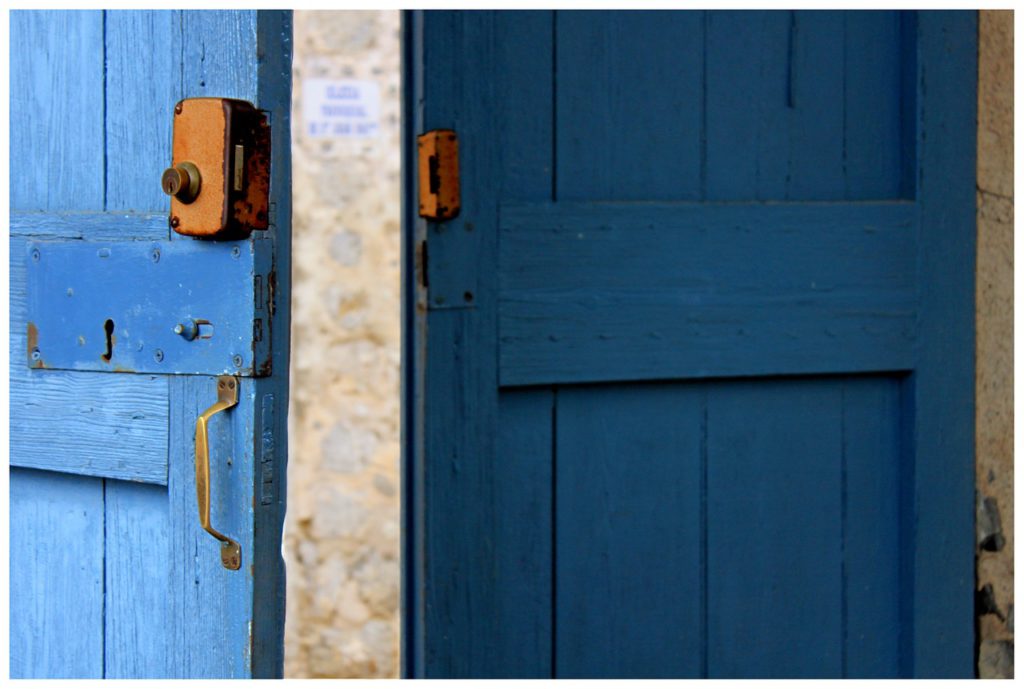 Double lock dodgy doors by leaning your backpack against it.
Double lock dodgy doors by leaning your backpack against it. - Watch what you put in your mouth. Not only gastro, but other serious illnesses such as hepatitis, typhoid, cholera and more are caused by contaminated food and water. There are a few basic rules to follow here for food and water safety: Firstly, Get your travel vaccinations! I can’t stress that enough. Find out what is required here. See a travel health professional at least 3 months prior to travel for your vaccination schedule which is specific to the country you are visiting and the type of trip you are taking. Drink only bottled water. Eat at busy restaurants, avoid salads and uncooked meats. Say no to ice in your drink, and eat fruit that can be peeled. Enjoy the local cuisine, but don’t get too cocky. Find out what happened to us in India.
- Road safety. Be alert on the road. If you are driving, be so cautious, but try to drive like everyone else so you don’t end up causing accidents. I remember driving through Italy and freaking out every time someone would overtake me with an oncoming car! But we soon realised that this was actually normal, and simply moved aside so the cars would pass 3 abreast. Try doing that in Australia! Ha! In Ho Chi Minh City, Vietnam the road is thick with motorbikes, you would never get a gap to cross so you just have to link arms and walk across at a steady pace with the motorbikes avoiding you instead. Don’t hesitate or all will be lost.
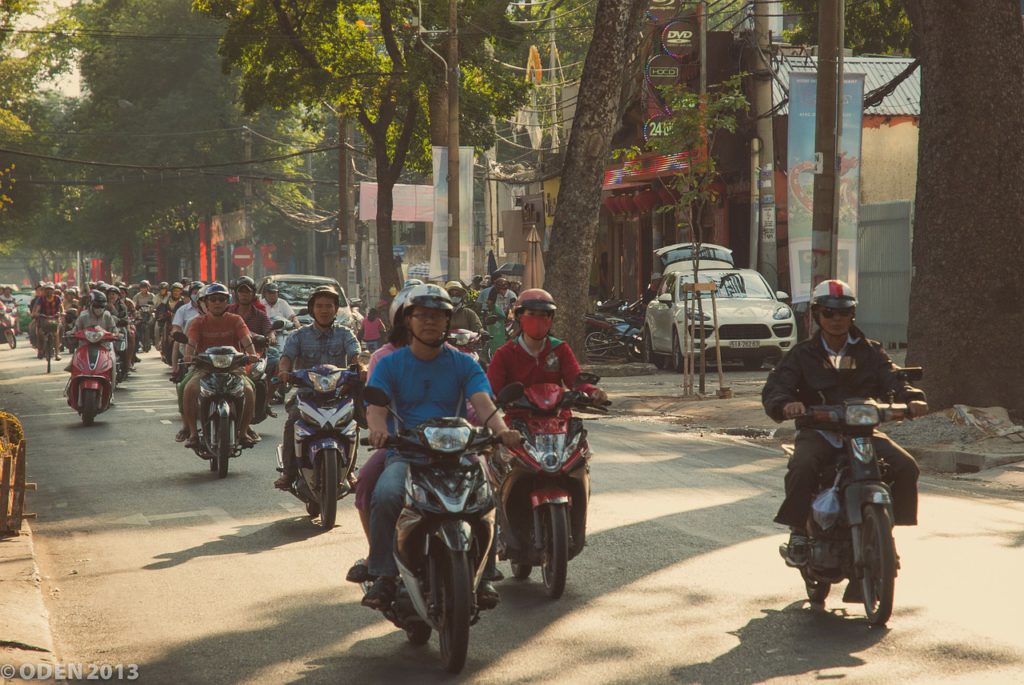 Try the world’s most dangerous road in Bolivia, if you are brave. I wasn’t that brave. We went on one very similar back from Rurrenbaque to La Paz, on a bus, at night. Lucky it was at night so we couldn’t see the drop-off!!! It is hard to put yourself in someone’s hands fully when they are in control of whether you live or die as your driver. Watch out for substance abusing drivers too!
Try the world’s most dangerous road in Bolivia, if you are brave. I wasn’t that brave. We went on one very similar back from Rurrenbaque to La Paz, on a bus, at night. Lucky it was at night so we couldn’t see the drop-off!!! It is hard to put yourself in someone’s hands fully when they are in control of whether you live or die as your driver. Watch out for substance abusing drivers too! - Terrorism. Unfortunately, in our day and age of travel, terrorism is a real danger that we must consider. Check for government advice before you travel. The Australian page is here: SmartTraveller. Avoid things like big crowds, rallies, protests and religious celebrations if there could be a risk. It is impossible to predict when and where an attack may occur, but the level of known risk is helpful.
- Natural disasters. Nobody could have known the scale of the South East Asian Tsunami on Boxing Day 2004. It wasn’t predicted either. The Tsunami in Japan was warned, but still caused massive damage and loss of life. Volcanoes are constantly causing travel disruptions in Bali and earthquakes kept us awake at night in Tokyo. Listen to local advice if and when you are unlucky and avoid travel to high-risk places. Don’t go to the Gulf of Mexico during hurricane season for example. Have a contingency plan in place and listen to the local news so you know what is going on. Keep your ear to the ground and follow instructions.
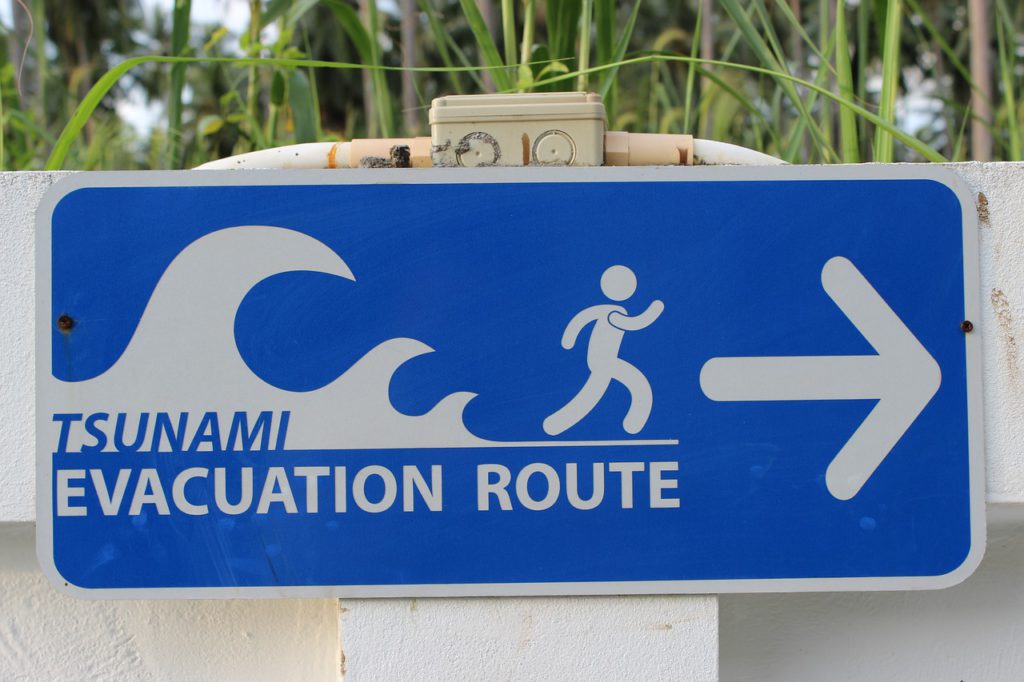
It is easy to keep yourself safe while you travel if you follow these simple traveling safety tips. Don’t be scared, just be careful and enjoy yourself. Travel Safe!
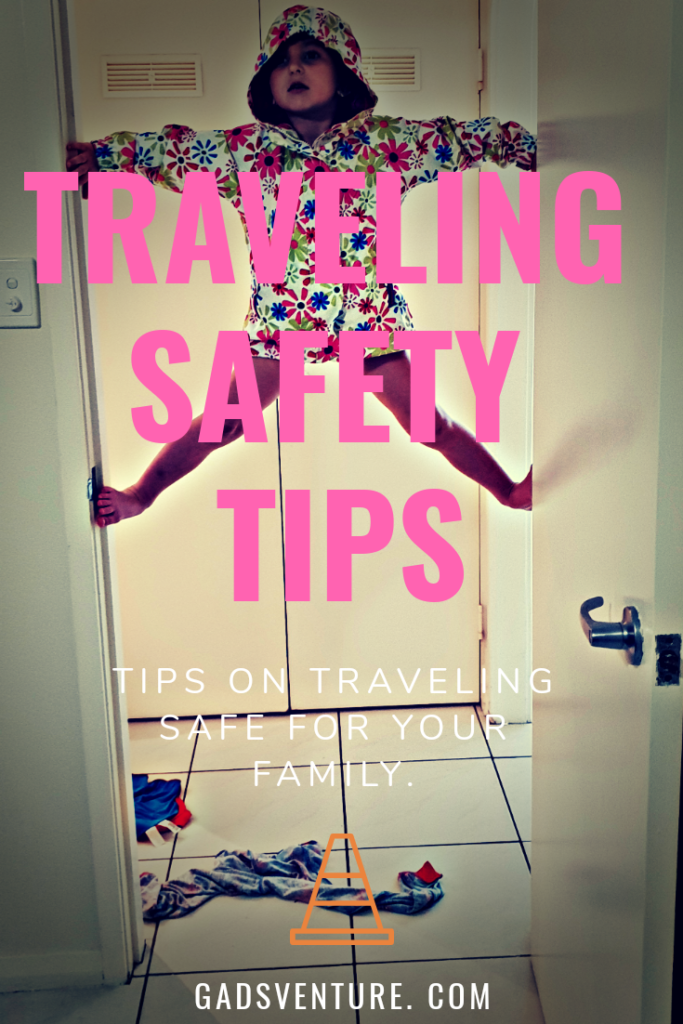

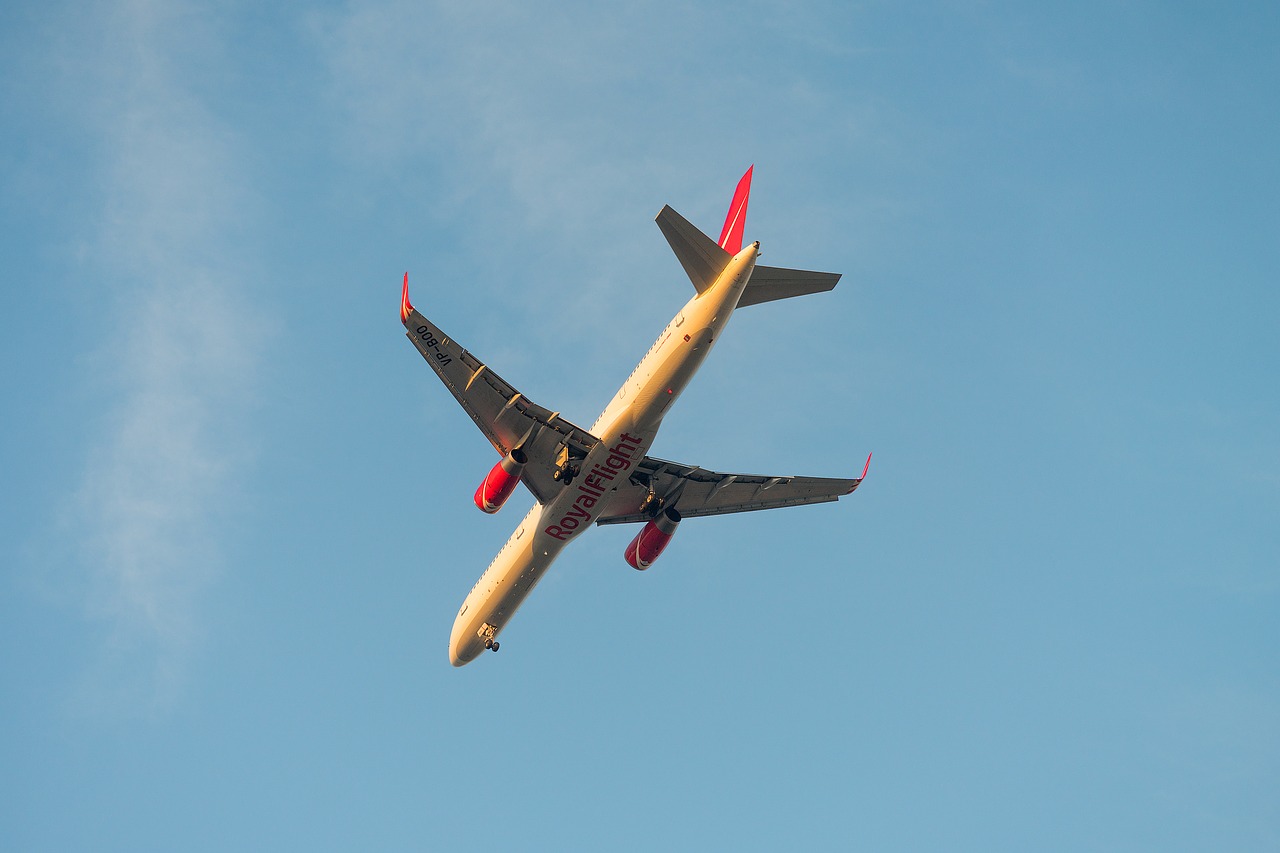
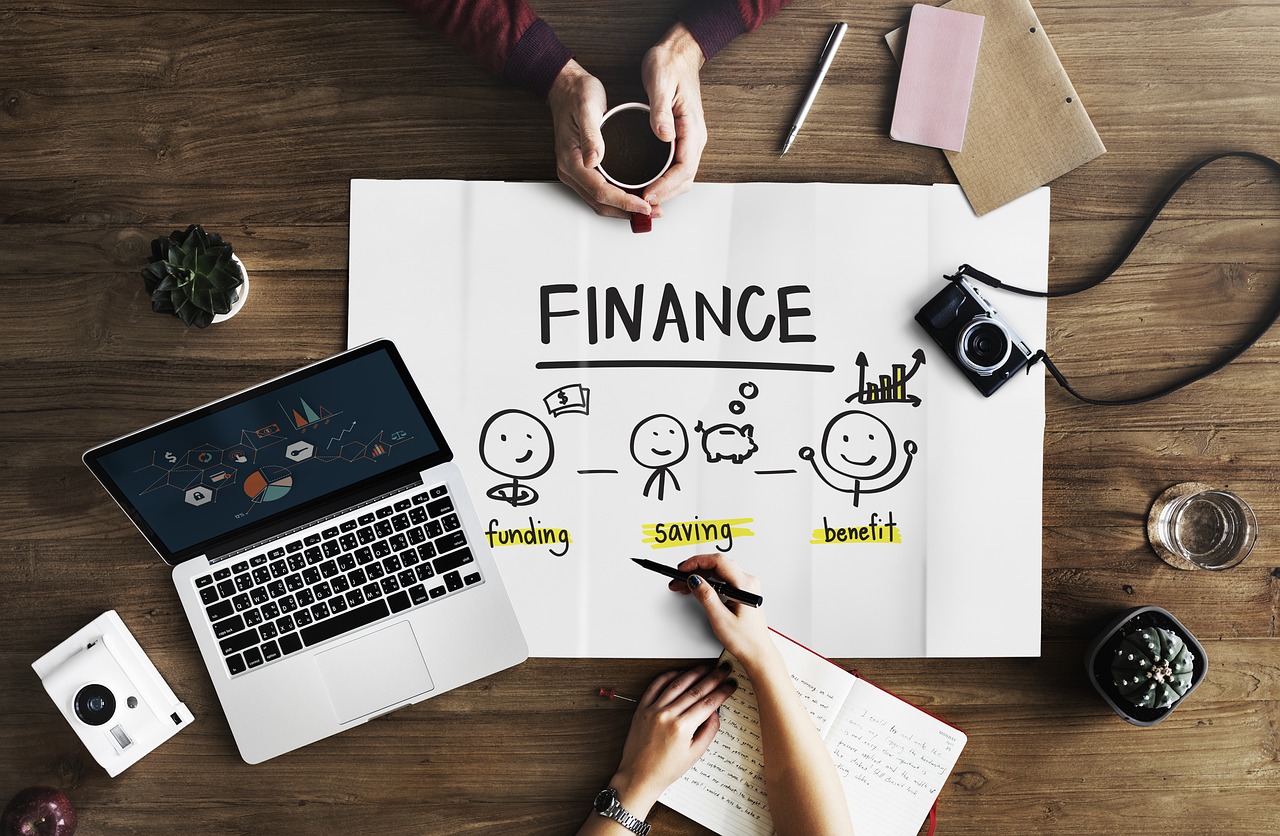 Tips on Getting Out of Debt
Tips on Getting Out of Debt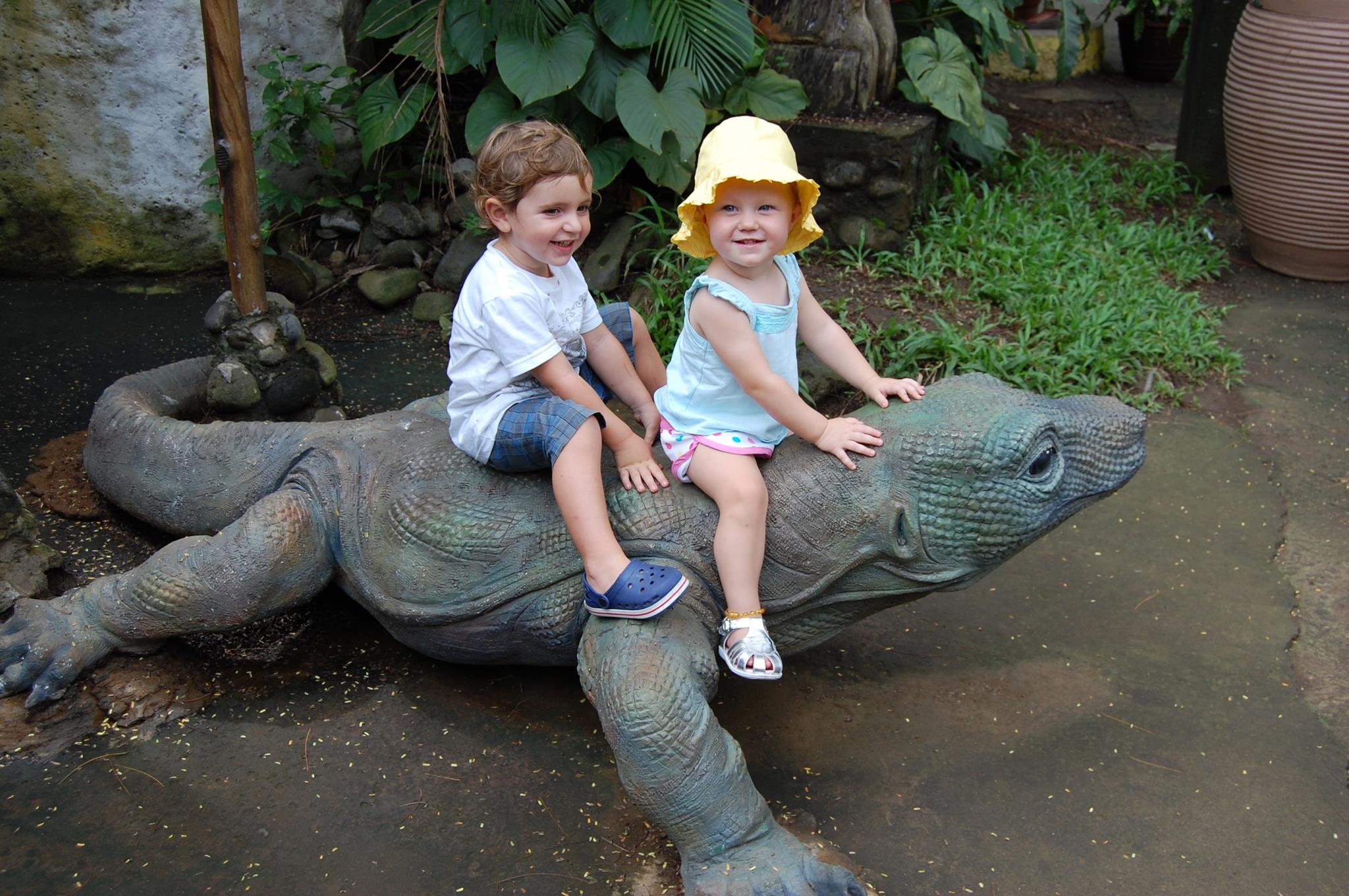

Great tips! We also write our phone number on our small children’s arms so they can show someone if they are lost . . . it’s rare that kids will remember exactly what their address is if they’re traveling around.
Travel insurance is very important! You never know if you’re going to need it, but if you do, you definitely want to have it.
Yes that is a great tip! I will add that one to the list!
Cheers and stay safe.
Great post and thanks for sharing. I think your two best points in this article were not to be flashy but be organized. If you can master those two I feel like everything else will fall into place. After reading this article I actually think I may consider getting travel insurance before my next trip.
I would never travel without insurance so I am glad you will at least consider it now 😉
Best wishes!